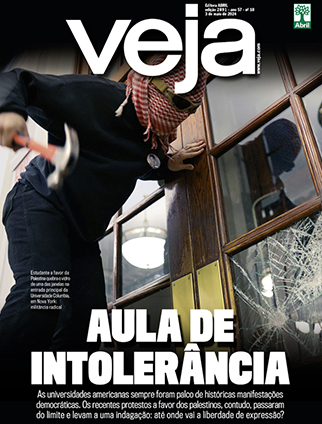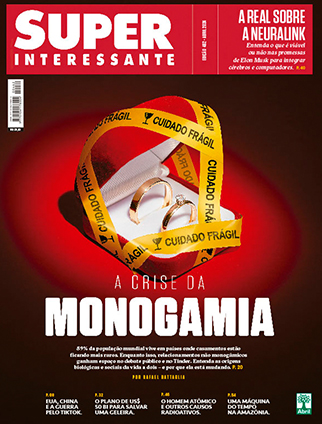Dilma Rousseff is reelected: the challenge now is make Brazil advance
The president´s victory means the PT is the only party to win four straight elections to the Planalto Palace. However, her second mandate promises to be tougher than the first
Following an extraordinary bitter campaign, a victory by a narrow margin. That was how 66-year-old Dilma Vana Rousseff, from Minas Gerais state, reached her second mandate as president of Brazil. The reelection was confirmed at 20:31 when, with over 98% of the results known, she achieved 51.45% of the votes and could not be overtaken by the PSDB candidate, Aécio Neves, who had 48.55%. The difference of only three percentage points is the smallest since the PT (Workers Party) came to power in 2002. In 2010, Rousseff obtained 56% of the valid votes compared with 44% for the PSDB candidate at that time, José Serra.
The tight victory ushers in a much more difficult second mandate for the PT´s champion. The last week of the electoral race was marked by the eruption of the “Operation Car Wash” scandal involving the diversion of funds from the state-owned oil company, Petrobras, which directly reached the president herself and her predecessor, Luiz Inácio Lula da Silva. As VEJA revealed, the detained currency broker Alberto Yousseff, who is being questioned by the Federal Police under a plea bargaining deal, told investigators that both Rousseff and Lula knew about the scheme. The electoral race is over and Rousseff will now have to deal with the developments of the case. At the same time, she will have to face a reinvigorated opposition against the gloomy backdrop of the economy in a technical recession and high inflation. The combination of a scandal of unparalleled proportions, the ingredients of which come from the official investigations, stronger adversaries and the economy in crisis could put Rousseff in the middle of a perfect storm.
However, even before embarking on her new mandate, the president has to decide whether to ignore the point of view of almost half the electorate or take them into account in drawing up her policies. The narrow difference between the candidates reflects an electoral race that was surrounded by turnarounds, marked by a tragedy, and one that will go down in history for the aggressive approach the president´s party took to avoid losing power. As Rousseff predicted in March 2013, the PT would do “whatever it took” in this campaign. In the first round, the PT propaganda machine turned its artillery against Marina Silva, who took over the PSB platform following the death of Eduardo Campos and soared ahead in the opinion polls within a short time. Silvia was sucked dry and did not reach the second round. It was then Aécio Neves´s turn to become the PT target. With unmatched efficiency, the PT machine invented a tale in which the PSDB candidate was disrespectful towards women and aggressive towards the head of state. From then on, the PT increased the number of blows it delivered below the belt. Rousseff´s election marked a historical milestone: the Workers Party has become the only one to win four consecutive elections to the Planalto Palace.
Two agendas – When Rousseff won the first election, a report on the VEJA site pointed out that: “Those who chose Dilma Rousseff for president in today´s election voted for a ‘black box’”. The recently-elected president was an unknown quantity at that time. Questions were asked over whether this “puppet” of Lula would escape from the shadow of her mentor. We now know that she had her own ideas to implement. She left her mark by creating the so-called “New Economic Matrix”, a badly assembled series of interventionist practices adopted to replace the policies of stability implemented by the Real Plan which not even Lula had discarded. As a result, she ended up with inflation above the target and economic stagnation. This cost her the backing of the middle class — including the “new middle class” which has started to appear over the last 12 years.
There is one way Rousseff can make her second mandate achieve Brazil´s potential. To do so, she must see the election result not as a go-ahead to make radical choices but as proof that two agendas need to run in parallel in today´s Brazil: the policies on social welfare and the modernization of the economy. The first is part of the classic PT agenda and ensured the support of its hard core electorate. Despite some possible distortions, this policy has actually helped the poorest part of the Brazilian population. Implementing the second agenda will require a considerable dose of humility from the president. She will have to recognize that, besides the allegations of corruption overhanging her party, the obstacles she imposed on growth were a crucial factor among those who rejected her candidature. Secondly, she will have to make a radical turnaround – i.e. a return to the rational economic policy she abandoned in her first four years of government.
Economic quagmire – The signs given during the campaign were not auspicious. On TV, the president did not hesitate to blame all the weaknesses of the economy on the international crisis and reverted to futile ideas such as her claim that those who disagree with the PT want to “hand the country over to the bankers”. (Her argument was recently overturned by a group of over 200 economists who got together to explain that the world is recovering — albeit slowly — and that the reasons for Brazil´s stagnation are essentially domestic.) This kind of nonsense may be put down to electoral marketing. Nevertheless, other bad signs can be seen. The finance minister, Guido Mantega, who will be stepping down, never stops claiming that there has been no mistake in the macroeconomic conduct and the same route will be followed in the coming four years. His likeliest successor is Aloizio Mercadante, the current chief of staff and a colleague of Rousseff from their time at Unicamp university. Mercadante unashamedly claimed that he would double his bets on the current model. He said in a recent interview with the Valor Econômico newspaper that the next government would “not pursue an orthodox policy”. Reading from the same hymn sheet as his boss, he claimed that inflation was not high, the public accounts were under control and interest rates were the lowest in history. “There is not the slightest expectation that Dilma will change the economic policy. What we can expect is that the government will stop putting one-off measures that block the market into practice. However, the economic route is the one we have seen. There will be nothing new,” said the former secretary of Foreign Trade from the Development Ministry, Welber Barral.
Should she cling to these ideas, Rousseff could confirm the tradition under which second mandates are always tougher than the first ones. The outlook does not make things easy for her. There is no doubt that she will have to deal with problems, such as the inevitable rise in energy charges and gasoline prices, which have been deliberately kept lower by the government. Inflation from controlled prices will come back in force in 2015 and should overtake the increase in freely-set prices, a development that has not occurred since 2009.
Opposition revived – The economic setbacks will be worsened by difficulties in Congress. Although the parties that formally supported Rousseff´s reelection have a majority in both Houses – 296 Congressmen and 53 Senators — the opposition has been dynamically reborn. A revived PSDB will join forces with a PSB that has reemerged from the ashes of its late candidate, Eduardo Campos, and have seven seats in the Senate and 34 in the House of Representatives. The opposition´s main beachhead will be the Senate where the government will not have the backing of one third of the members. The opposition benches will also have heavyweight representatives, such as the former PSDB governors José Serra (São Paulo), Antonio Anastasia (Minas Gerais) and Tasso Jereissati (Ceará), Congressman Ronaldo Caiado (DEM-Goias) and Rousseff´s own adversary in the final round of the election, Aécio Neves (PSDB). The PT and PMDB will remain the largest grouping in the House of Representatives but with a smaller contingent than after the election in 2010.One new feature of the results was the great breadth of Congressmen elected by parties that will form a large “central block” – such as the PSD, Pros, PR, PTB and PSC, for example. These could vote in line with the government´s interests but their loyalty is not automatic and they are likely to start bargaining for positions within the administrative machine. Another factor is that the Rousseff government will become even more dependent on the PMDB in both Houses as the party will have, for example, 18 Senators and retain the chairmanship of the Senate and the House of Representatives. In this latter case, the likely victory of Congressman Eduardo Cunha (PMDB-Rio de Janeiro) to command the House should be another headache for Rousseff. This is because Cunha was one of the leaders of the rebellions among the government´s allied base during her first mandate. Cunha is set to replace another PMDB member who is unhappy with the PT, Henrique Eduardo Alves. He blamed Lula´s support for the rise of his adversary in the dispute for the governorship of Rio Grande do Norte state, Robinson Faria of the PSD.
Dilma Rousseff triumphed at the ballot station, winning the votes of 54.4 million Brazilian. It is in everyone´s interest that, rather than become bogged down in an international crisis and revive the division between the “rich and poor”, her new government makes the country advance. Let´s hope that she knows how to — and can — exercise a second mandate that matches Brazil´s potential.


 SEGUIR
SEGUIR
 SEGUINDO
SEGUINDO

 Shopping se manifesta sobre ‘calote’ de Taís Araújo
Shopping se manifesta sobre ‘calote’ de Taís Araújo Ivanir dos Santos entra com representação contra Ludmilla: ‘É crime’
Ivanir dos Santos entra com representação contra Ludmilla: ‘É crime’ A mais longa das noites: países árabes cooperaram com Israel contra Irã
A mais longa das noites: países árabes cooperaram com Israel contra Irã A morte que vai abalar ‘Renascer’ – e as diferenças para a versão original
A morte que vai abalar ‘Renascer’ – e as diferenças para a versão original Dívida de Taís Araújo em condomínio vira caso de Justiça
Dívida de Taís Araújo em condomínio vira caso de Justiça







